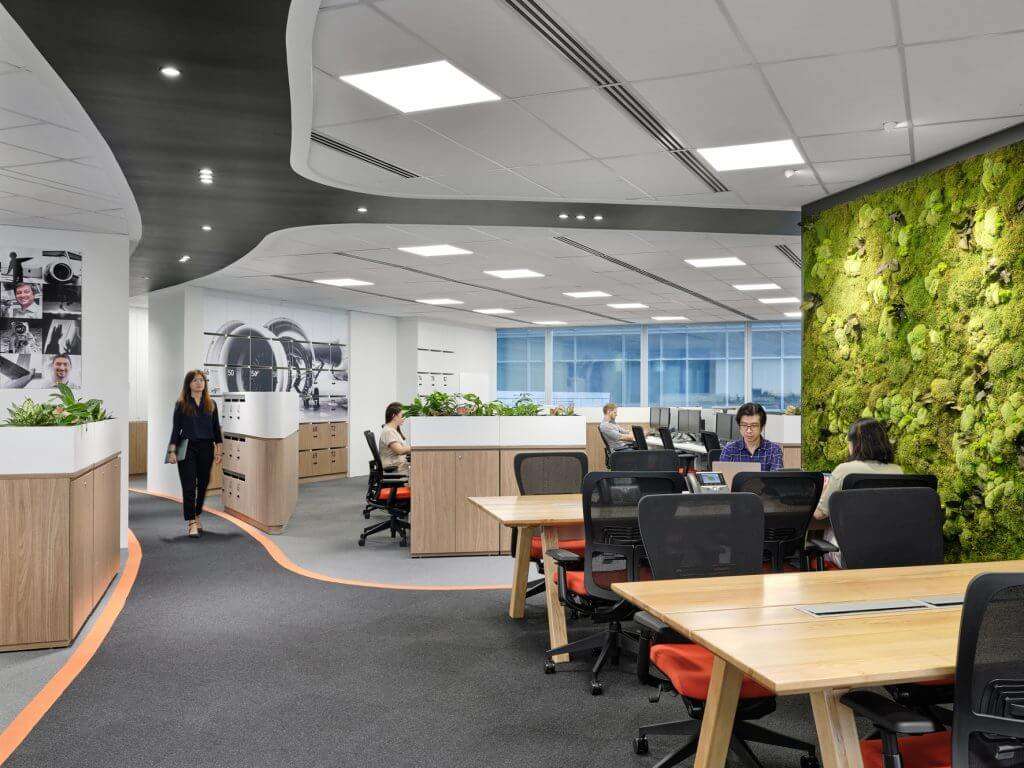Sustainable office systems in Singapore refer to the practices and processes that are implemented in an office environment to reduce the negative impact on the environment while promoting social and economic benefits. These systems are designed to reduce waste, conserve energy and water, and promote sustainable transportation. Sustainable office systems are becoming increasingly important as businesses look for ways to reduce their carbon footprint and become more environmentally responsible. According to a report by the World Green Building Council, green buildings can reduce carbon emissions by up to 34% compared to traditional buildings.
Benefits Of Sustainable Office Systems
Cost Savings
Sustainable office systems can help companies save money in a number of ways. For example, by reducing energy consumption and waste, companies can lower their utility bills and reduce their operating costs. Additionally, by implementing sustainable practices such as telecommuting and flexible work arrangements, companies can reduce their real estate costs and save money on office space.
Increased Productivity
Sustainable office systems can also help increase productivity in the workplace. For example, by improving indoor air quality and reducing noise pollution, companies can create a healthier and more comfortable work environment that is conducive to productivity. Additionally, by implementing sustainable practices such as telecommuting and flexible work arrangements, companies can help employees achieve a better work-life balance, which can lead to increased job satisfaction and productivity.
Improved Employee Health and Well-being
Sustainable office systems can also have a positive impact on employee health and well-being. For example, by improving indoor air quality and reducing noise pollution, companies can create a healthier work environment that is less likely to cause respiratory problems or hearing loss. Additionally, by implementing sustainable practices such as telecommuting and flexible work arrangements, companies can help employees achieve a better work-life balance, which can lead to reduced stress levels and improved mental health.
Green Practices in Singapore Workplaces
Energy Efficiency
One of the most effective green practices that companies can implement is energy efficiency. This can include measures such as installing energy-efficient lighting and appliances, using natural light and ventilation where possible, and optimizing heating and cooling systems. By reducing energy consumption, companies can lower their utility bills and reduce their carbon footprint.
Waste Reduction
Another important green practice is waste reduction. This can include measures such as recycling paper, plastic, and other materials, reducing paper usage through digitalization, and composting food waste. By reducing waste, companies can lower their disposal costs and reduce their environmental impact.
Sustainable Transportation
Sustainable transportation is another important green practice that companies can implement. This can include measures such as encouraging employees to use public transportation or carpooling, providing bicycle parking facilities, and offering incentives for employees who use sustainable transportation options. By reducing the number of cars on the road, companies can help reduce traffic congestion and air pollution.
Challenges to Implementing Sustainable Office Systems
Lack of Awareness
One of the biggest challenges that companies face when trying to implement sustainable office systems is a lack of awareness. Many employees and managers may not be aware of the benefits of sustainable practices or may not know how to implement them effectively. To overcome this challenge, companies can provide training and education programs to help employees understand the importance of sustainability and how they can contribute to it.
Resistance to Change
Another challenge is resistance to change. Some employees and managers may be resistant to new practices or may be hesitant to change their existing habits. To overcome this challenge, companies can involve employees in the planning and implementation process and provide incentives for those who adopt sustainable practices.
Cost
Cost is another challenge that companies face when trying to implement sustainable office systems. Some sustainable practices may require an initial investment or may have higher operating costs than traditional practices. To overcome this challenge, companies can conduct a cost-benefit analysis to determine the long-term savings associated with sustainable practices.
Overcoming Challenges and Implementing Sustainable Office Systems
Education and Training
One effective way to overcome challenges and implement sustainable office systems is through education and training. By providing employees with the knowledge and skills they need to implement sustainable practices, companies can help ensure that these practices are adopted effectively. This can include training on energy efficiency, waste reduction, and sustainable transportation.
Employee Engagement
Another important factor in implementing sustainable office systems is employee engagement. By involving employees in the planning and implementation process, companies can help ensure that these practices are adopted effectively. This can include soliciting feedback from employees on sustainable practices and providing incentives for those who adopt them.
Leadership Support
Finally, leadership support is critical for implementing sustainable office systems. By demonstrating a commitment to sustainability and providing the necessary resources and support, leaders can help ensure that these practices are adopted effectively. This can include setting sustainability goals, providing funding for sustainability initiatives, and recognizing employees who contribute to sustainability efforts.
Conclusion
In conclusion, sustainable office systems and green practices are becoming increasingly important in Singapore workplaces. By implementing sustainable practices such as energy efficiency, waste reduction, and sustainable transportation, companies can save money, increase productivity, and improve employee health and well-being. However, there are also challenges to implementing these practices, such as a lack of awareness, resistance to change, and cost. To overcome these challenges, companies can provide education and training programs, involve employees in the planning and implementation process, and demonstrate leadership support. By working together to implement sustainable office systems and green practices, we can create a healthier and more sustainable future for Singapore.



































